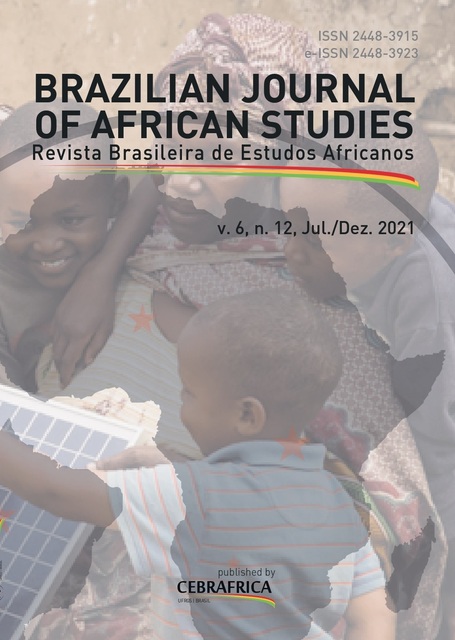NEW NORMAL AND THE CHALLENGES OF ELECTRONIC GOVERNMENT ARCHITECTURE IN AFRICA: EXPLORING POST-COVID-19 SOCIOTECHNICAL POSSIBILITIES IN COMPARATIVES PERSPECTIVE
DOI:
https://doi.org/10.22456/2448-3923.111312Keywords:
e-Government. E-Government Architecture. Socio-technical Conditions. Africa.Abstract
The process of building the architecture of electronic governments in the world begins as management tools that focus primarily on the technical (ICTs) and social side (structural possibilities of ICT use). As the most recent literature shows, there is a set of tools that map side by side the four levels of e-Government (G2C, G2G, G2B, G2E) and the benefits/challenges. It is in this context that the study aims to analyse and problematise in a comparative perspective, the set of architectures that have been carried out in various quadrants of the world, with regard to the development of e-Government in its 4 dimensions (4D), in the time of normal news past COVID 19. Methodologically and from a socio-technical and empirical perspective, it is a comparative and longitudinal study, and works with similar and different aggregated data in African countries. In addition, government documents and online material have been analysed. From the results in a comparative perspective, it can be seen that there is a set of tools and possibilities that help the implementation of an e-government architecture in all countries, but that its density and effectiveness depends very much on the investments and socio-economic conditions of each country that considers the technological aspects, processes and people. In concluding notes, it is noted that there are constant flaws in African countries that jeopardize concrete e-Government projects, especially the fact that it does not give special and balanced attention between demographic/social aspects and the technical dimension.Downloads
Download data is not yet available.
Downloads
Published
2021-12-31
How to Cite
Terenciano, F., & Muriezai, T. (2021). NEW NORMAL AND THE CHALLENGES OF ELECTRONIC GOVERNMENT ARCHITECTURE IN AFRICA: EXPLORING POST-COVID-19 SOCIOTECHNICAL POSSIBILITIES IN COMPARATIVES PERSPECTIVE. Brazilian Journal of African Studies, 6(12). https://doi.org/10.22456/2448-3923.111312
Issue
Section
Articles
License
The author will hold copyright over the published articles and retain publishing rights.

Brazilian Journal of African Studies is licensed under a Creative Commons Atribuição 4.0 Internacional.


